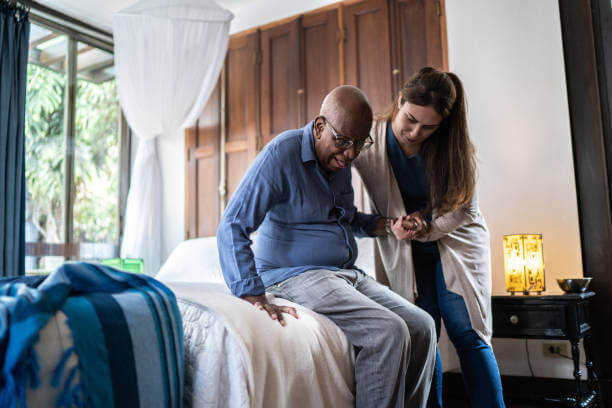At Caregiverlist, we believe in “Caring for the Caregiver.” But just who is that senior caregiver?
As seniors choose more to age-in-place, their team of caregivers may grow. It might “take a village” to provide comprehensive care, so here are the possible villagers:
Family Caregivers
These are the unsung (and unpaid) senior caregivers. They provide the bulk of care for elderly family members. According to AARP and the Family Caregiver Alliance, the value of unpaid family caregivers will likely continue to be the largest source of long-term care services in the U.S., and the aging population 65+ will more than double between the years 2000 and 2030, increasing to 71.5 million from 35.1 million in 2000. Most family caregivers are women. About one-in-seven adults in their 40s and 50s provide financial support to both an aging parent and a child, not to mention emotional and physical support. That may be why the “Sandwich Generation” is helping to make senior home care such a thriving industry.
Professional Caregivers or Home Attendants
Senior home care agencies provide reliable, vetted, professional caregivers to assist seniors with the activities of daily living (ADLs). This can include assisting with light exercise. providing much-needed companionship, and assistance with bathing, dressing and grooming. Many home care agencies prefer certification and many states have minimum training requirements. You can obtain the skills for senior caregiving by taking the 10-hour line Caregiverlist Caregiver Certification training course.
Home Health Aides
Primarily, HHAs assist with bathing, dressing and other hygiene needs, in addition to preparing meals and helping patients eat. In some instances, they might provide some simple medical assistance, such as tracking medication and changing dressings. HHAs do not hold licenses but many employers prefer them to be certified. The certification process requires passing an exam after 75 hours of training and skills testing.
Certified Nursing Aide or Assistant (C.N.A.)
C.N.A.s provide more extensive health and personal support to seniors in the home. Many times they are responsible for “total client care”, which includes physical and emotional care as well as home safety, comfort, and security. A C.N.A.’s duties might include checking vital signs, assist with performing range of motion exercises, with lifting or transferring the patient to a chair or wheelchair. A C.N.A. has to be certified and licensed through the state Department of Health in which they work (sometimes states have reciprocity, or you can sometimes transfer your license to a new state.) Training involves both theory, or classroom work, and clinicals, the hands-on practice. Every state has established guidelines for training requirements and exams in order to become certified.
Occupational and Physical Therapists
Therapists may come to the home, on a doctor’s order, usually after a hospital or nursing home stay. They will work with patients to help them increase strength, balance and coordination. Therapy may help a senior regain the fine motor skills they need to function in day-to-day activities, such as dressing and bathing.
There are, of course, a variety of other home care support services, such as meal delivery and transportation services. Skilled home nursing (RNs and LPNs) who, when prescribed by a physician, can provide more intensive medical services to help a senior stay in their home and independent longer. Comprehensive senior care allowing the elderly to age-in-place is a team effort. If you are interested in becoming part of a family’s senior care village, consider applying for a job as a senior caregiver.







